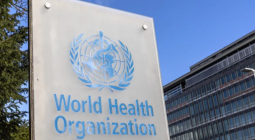Mpox Not Under Control in Africa as Sierra Leone Cases Jump
Africa is set to record more mpox cases this year than it did in 2024, when an explosion of the virus prompted the declaration of an international health emergency.
More than 64,000 cases have been reported in the five months through May, nearing the 77,000 registered all of last year, Ngashi Ngongo, a principal adviser at Africa Centres for Disease Control and Prevention, said in a briefing Thursday.
“The situation is not yet under control” even as vaccines secured late last year are rolled out, he said. “If anything, we should be worried.”
While much of the spread of the disease that can also result in blindness and disfigurement is in Democratic Republic of Congo in central Africa, concern is shifting to Sierra Leone, which accounted for 53% of new confirmed cases last week, driving the continent-wide increases seen since mid-April.
There are some key differences in the current surge in the West African nation compared with what was seen in Congo in 2024.
In Sierra Leone, almost 70% of the confirmed incidents are in men, and children make up less than 3%. That compares with people under the age of 15 accounting for the bulk of mpox cases and deaths last year.
Most of the focus in 2024 was on the subvariant clade Ib, which authorities only identified late in 2023, but has killed hundreds of children in eastern Congo. It appeared to spread more rapidly than clade Ia, both through sexual activity of all kinds and close physical contact.
The milder strain known as clade IIb, which erupted globally in 2022 with infections concentrated among men who have sex with other men and have multiple partners, is the subvariant identified in Sierra Leone. Three districts with high tourism account for about 91% of the cases. There have also been many incidents among students, Ngongo said.
Disease monitoring in the country has been weak, with “all those that come already at an advanced stage,” he said. This “passive surveillance” is a “major weakness” and while community health workers had been recruited to help, that program was stopped because of a lack of sufficient funding, he said.
Cholera is also on the rise, with Africa accounting for 94% of all deaths from the diarrheal disease, Ngongo said. A warming world increases both flooding and droughts in countries with the lowest health spending and fewest resources — often in remote, conflict-prone areas. Poor water conditions and sanitation have led to recurrent outbreaks.
There are three oral cholera vaccine manufacturing projects in various stages of completion in Africa, but need $150 million in financing and secured demand from governments, he said.
Cover photo: A healthcare worker administers Mpox vaccine in Kampala, Uganda, on February 01, 2025.



